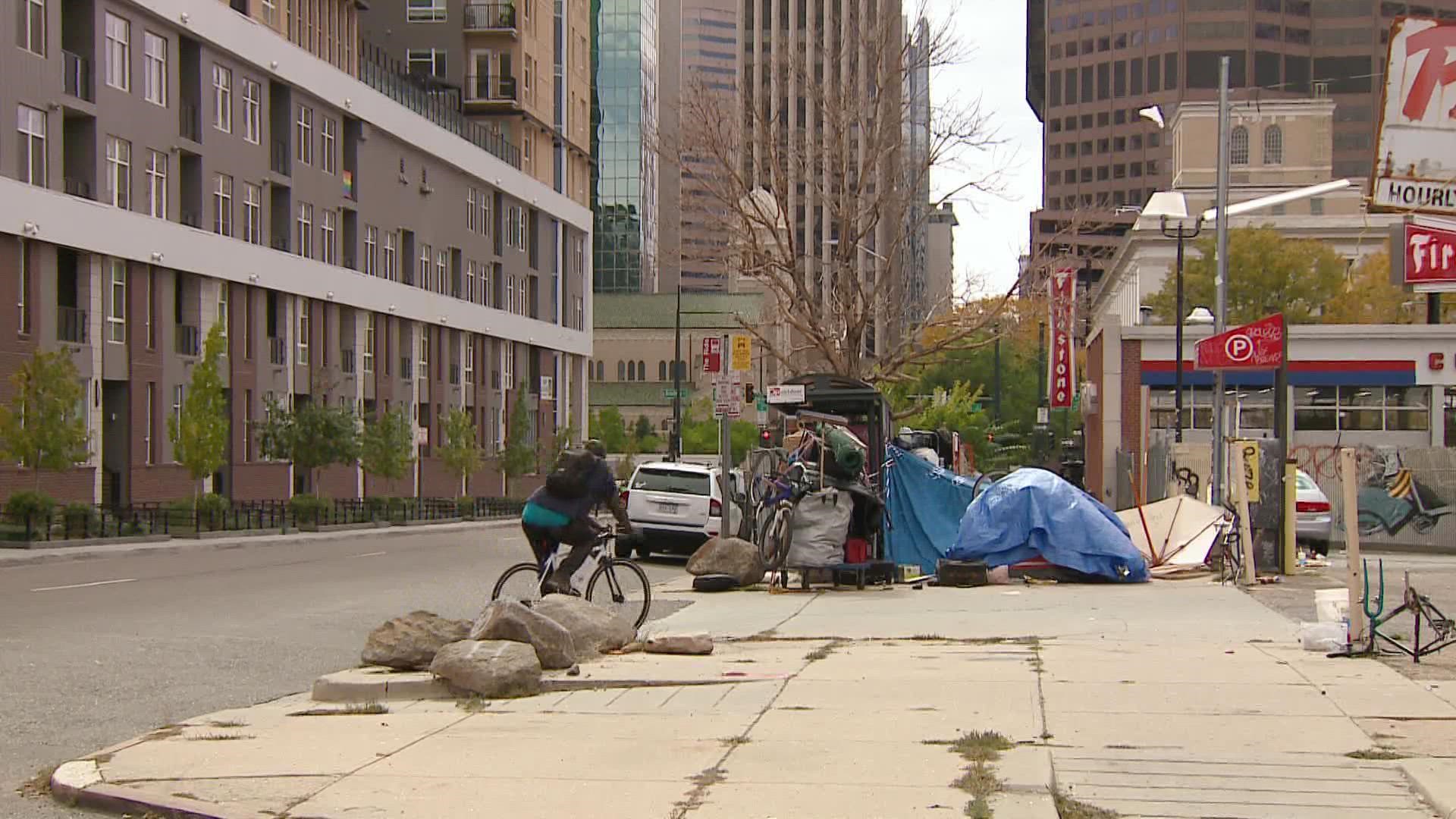DENVER — New data released by the Metro Denver Homeless Initiative (MDHI) shows an overall increase in people experiencing homelessness in Denver, but it also shows a 31% decrease in veterans experiencing homelessness in the metro area.
MDHI released the data last week from the annual Point in Time (PIT) count, which is a one-night snapshot of people who are unhoused on a given night in January.
The numbers show a 31% decrease in veterans experiencing homelessness across seven counties in the Denver metro: Adams, Arapahoe, Boulder, Broomfield, Denver, Douglas and Jefferson counties. This year, data shows 432 veterans experiencing homelessness compared to 627 in 2020.
There's been a 34% decrease for veteran homelessness for the City and County of Denver.
Overall homelessness is up 12.8% in the metro area and up 15% in Denver.
The PIT data counted 6,884 unhoused people, but MDHI said that number is closer to about 31,000 people who are unhoused throughout the course of the year.
"While the Point in Time (PIT) is incredibly important, our region has worked very hard to establish quality, real-time data on homelessness so that we not only understand homelessness on a given night in January through the PIT, but each and every day via our Homeless Management Information System (HMIS) that is now widely utilized by providers of housing and homelessness," said Dr. Jamie Rife, executive director of MDHI.
A lot of people who are experiencing homelessness in Denver are often the most vulnerable.
"You have a lot of people who have been through traumatic traumas that stopped them from excelling," said Ne-Keith Baldwin.
He's been unhoused off and on for the last ten years.
"There are so many things that it could be," said Baldwin. "But, I believe if people had a house, car and occupation, everything will be okay."
Baldwin said he's glad to hear veteran homelessness has gone down but he knows a lot more people need help, too.
"I think everybody deserves a chance, even a second chance," he said.
"The fact that veteran homelessness has gone down 31%, it's like a kid brings home his report card full of D-'s except he got a B in shop," said Benjamin Dunning, organizer with Denver Homeless Out Loud. "We've got to do something about all of those D-'s we're dealing with. Okay, we got a B, but it's kind of an outlier."
Dunning said veterans have long been ignored and they deserve the support.
"Everybody needs housing who doesn’t have it," he said.
But, he said in order for everyone to succeed, housing needs to become less expensive.
“We are currently in a housing market that for decades builds at market rate," said Dunning. "We've got to build budget housing, stuff that's below market rate. So we need developers who are smart enough to be more focused on housing people than the resale of what they've built five years down the line."
Exploding costs for rent and groceries are adding to the number of people who are becoming unhoused.
"As we see rents continue to climb, we see more and more people unable to make rent," said Britta Fisher, chief housing officer for the City and County of Denver. "When we think about what can we each do, I think about landlords and their willingness to accept housing vouchers, that is needed for this type of resource to work."
She said Veteran Affairs Supported Housing vouchers (VASH) are a big reason as to why veteran homelessness is decreasing.
Fisher hopes the same thing can happen for other demographics as well.
“We need housing resources for everyone and that’s why we’ve continued to advocate not only within our own city budget which has $254 million in 2023 proposed and before city council for approval but also at the state level, the federal level," she said. "We need housing vouchers. We need housing resources in order to help people experiencing homelessness."
Dunning said while it's good the number of unhoused veterans is down, newly homeless youth is up 59% and Native Americans experiencing homelessness is up 46%, to name a few.
He said the good news is the data on veterans is proof it can be done for other demographics, too.
"The overrepresentation of people of color, specifically black and Native Americans, among those experiencing homelessness is critical to the response," Dr. Rife said in a press release. "Homelessness is an issue of race and must be approached through this lens."
SUGGESTED VIDEOS: Latest from 9NEWS

